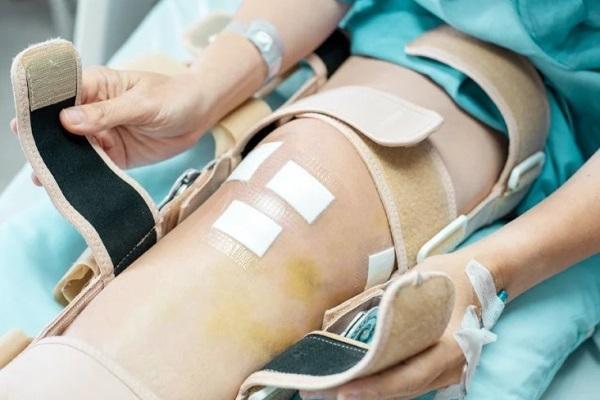According to a recent study, patients who had dental caries or dental implants in the year prior to total knee replacement have more complications, including heart attacks.

To the researchers' knowledge, this is one of the largest studies to analyze the relationship between caries and implants among patients who received knee replacements within one year joints.
“Caries or implant placement may reflect a general deterioration in health resulting in more complications and higher costs after total knee replacement,” write the authors, led by Dr. Michael Mott of the Orthopedic Surgery Institute. Rubin at the Sinai Hospital of Baltimore.
In the US, prophylactic antibiotics are usually given to patients who have had a joint replacement before they undergo invasive dental procedures to prevent infection. Due to the lack of randomized controlled trials associated with this practice, the question of whether or not to give antibiotic prophylaxis remains unclear.
Despite the uncertainty, clinicians are simply compelled to prescribe antibiotics to patients before they undergo invasive dental procedures. Thus, a better understanding of the impact of prior dental history on overall joint replacement outcomes and infection is still needed.
To determine the association between caries or dental implant placement in total knee replacement patients, a retrospective study was conducted using Mariner's private insurance claims data retrieved from the PearlDiver database. Data ranged from January 2019 to October 2020.
The study involved 9,921 patients. According to the study, 1,466 patients received a dental implant one year before knee surgery, 1,127 patients a year after knee replacement, and a comparison group of 7,328 patients did not receive implants within 12 months after surgery.
In patients with dental implants or with caries one year prior to total knee replacement, the incidence of postoperative 90-day medical complications was 1.5 times higher than in patients without oral history. Complications included myocardial infarction (2.52% vs 1.23%), pneumonia (2.52% vs 1.24%), and urinary tract infections (5.66% vs 3.45%).
In addition, patients with a dental implant placed 12 months after knee surgery experienced a heart attack within 90 days of implant placement. There were no other significant differences in medical complications among patients.
The retrospective study had limitations, including that the results may not reflect a true correlation between dental caries and implants in total knee replacement, the authors write. The authors of the study advised orthopedic surgeons to take an oral history before performing procedures to better understand the impact of dental implants or caries on postoperative medical and infectious complications.
“Finally, collaborative decision-making regarding the use of antibiotic prophylaxis, appropriate screening, and formal dental assessments for patients without a recent examination should be introduced,” wrote Mott and colleagues.
